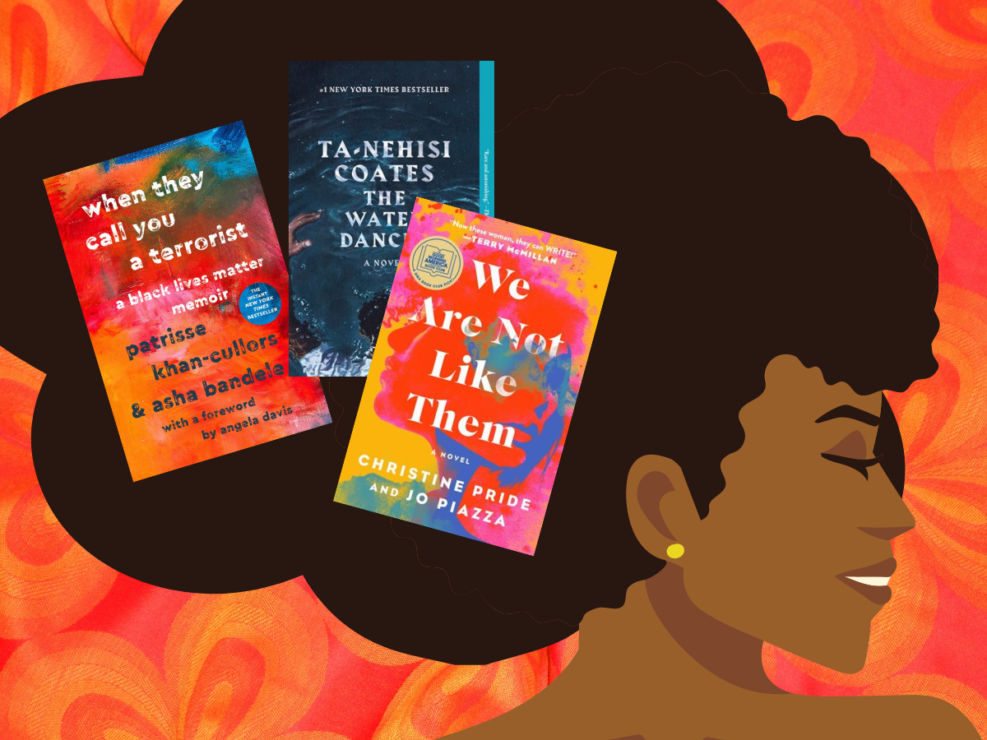It’s important to read books by Black authors every month of the year

While Black History Month is nearly over, it’s important to read books by Black authors every month of the year. Here are a few books I’ve recently read that were eye-opening, riveting, and essential.
From memoirs to historical fiction, these books offer unique perspectives that examine both Black history and how it continues to inform the present.
We Are Not Like Them by Christine Pride and Jo Piazza (2021)
Named a Best Book Pick of 2021 by Harper’s Bazaar, We Are Not Like Them follows the story of two women who have been best friends since childhood. Jen is pregnant and happily married to a police officer, and Riley is positioned to become one of the first Black anchors for the top news channels in Philadelphia. When Jen’s husband murders an unarmed Black teenager while on duty, Jen and Riley’s friendship falls into turmoil.
Written from Jen and Riley’s alternating perspectives, We Are Not Like Them closely examines the relationship between the police, racism, and white privilege. The story explores how the police shooting reverberates throughout a Black community and the trauma that inevitably is uncovered and forged.
We Are Not Like Them balances trauma with resiliency and joy. It can be challenging to create that balancing act in a story about police murder, but as Riley navigates her fractured friendship with Jen, there are moments of healing, rekindled love, and resiliency. We Are Not Like Them is a page-turner that weaves triumph and tragedy together. The novel does an exceptional job at juxtaposing Riley and Jen’s perspectives, and critiquing the privilege that white people, especially white police officers, have in our judicial systems.
The Water Dancer by Ta-Nehisi Coates (2019)
A work of historical fiction that blends real life historical figures with magical realism, The Water Dancer follows the life of Hiram Walker, an enslaved individual that escapes and begins working for the Underground Railroad. Using a mysterious power, Hiram fights to free the people that he loves from slavery.
If you’re a fan of Toni Morrison, Ta-Nehisi Coates’ fictional style is reminiscent of works such as Beloved. Coates paints a vivid picture of the deep South and the utopian movements of the North, and how the theft of someone’s physical and spiritual life can shape life paths in inexplicable ways.
When They Call You a Terrorist by Patrisse Khan-Cullors & asha bandele (2018)
For fans of non-fiction, the instant New York Times Bestseller When They Call You a Terrorist is the memoir of the co-founder of Black Lives Matter, Patrisse Khan-Cullors. In the novel, Khan-Cullors dissects white supremacy in America and how Black Americans are persecuted by law enforcement.
Spanning the timeframe from her childhood to the conception of Black Lives Matter and the birth of her first child, When They Call You a Terrorist is an intimate memoir that lays bare how capitalism and the prison-industrial complex destroys the lives of Black Americans. This story about survival is brilliantly written and an important read for understanding how and why the criminal justice systems of the Global North target Black people.
Roots: The Saga of an American Family by Alex Haley (1976)
An essential work of historical fiction, Roots by Alex Haley is one of the most memorable novels I have ever read. The saga tells the story of Kunta, an 18th-century African man who is captured and sold into slavery in America. The novel follows Kunta’s life and the lives of his descendents into the 20th century down to Haley himself. By chronicling the tale of his family tree, Haley explores the lasting impacts of slavery, the importance of recapturing one’s history and identity, and how intergenerational trauma shapes the lives of many Black Americans.
Haley is an exceptional writer who brings three hundred years of colonial history to life on the page, and this novel is unflinching in its examination of the trauma of slavery.
Cane River by Lalita Tademy (2001)
Another work of historical fiction, this novel holds echoes of Roots as Lalita Tademy writes the story of her great-great-great-great grandmother and the three generations of women who follow. Taking place on a Creole plantation in Louisiana, Tademy narrates a family’s journey from slavery to freedom. Weathering the timespan from the Civil War, Emancipation, Jim Crow, and the pre-Civil Rights South, Tademy examines how racial and cultural attitudes shaped the lives of Black women in the 19th and 20th centuries.
Just like Roots, this novel is unyielding in its examination of the trauma that Black women in America have endured and continue to experience. Beautifully written with remarkable characters, Cane River embodies the resilience of women.






